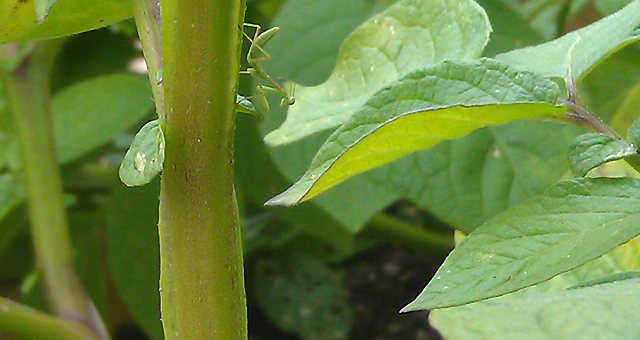Organic Pest Control
No garden is perfect, or at least it doesn’t get that way without some occasional trouble caused by weather, nutrition, or pests. This article focuses on the latter, common garden pests, and how to control pests organically. Check out the common pests below, and our recommendations.
Most Small Insects
Most small insects will get consumed by larger predatory insects. The most beneficial, is probably the mantis. Hatching a mantis egg sack inside your garden can help prevent future pests, as well as take care of smaller ones.
Snails and Slugs
Copper tape. Copper creates an electrically charged barrier that repels slugs and snails, and works when wet.
Corry’s Slug and Snail Copper Tape Barier
Extracts, Oils, Acids, Salts. Organic options made from extracts, oils, acids, and salts repel and kill snails, slugs, silverfish, and other insects.
Monterey All Natural Snail and Slug Spray RTU
Ants, Aphids, Bagworms, Borers, Beetles, Caterpillars, Codling Moth, Gypsy Moth, Loopers, Leaf Miners, spider mites, Tent Caterpillars, Thrips, White Flies, Earwigs, Grasshoppers, Lace Bugs, Mealy Bugs, other larvae
Spinosad. What is Spinosad? Spinosad is a naturally occurring bacterium that has become a leading organic pesticide globally.
Captain Jack’s Dead Bug Brew
Insecticidal Soap
Ortho Elementals Insecticidal Soap
Preventative strategies
Why treat a problem when you can avoid it altogether? Try adding plants that dissuade pest insects from your garden.
Planting Garlic, Onion, Peppermint, and Marigolds in your garden can be effective in repelling beetles, ants, aphids, and other common insects.
Tags: Box Garden Basics, Gardens, Insects, Organic, Pests Comments

I have also used warm dish soap to help get rid of aphids and ants. The lady bugs work great too. Just remember to put them out in the evening , so they don’t fly away.